

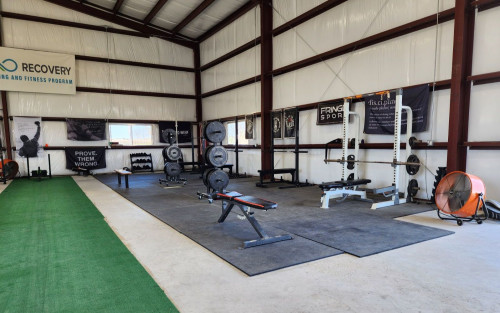

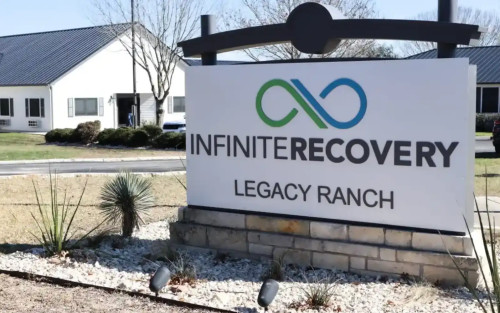




Infinite Recovery - Austin
Verified Center
This provider's information has been quality-checked by Recovery.com's Research Team for accuracy and completeness, including center verification through appropriate third-party organizations.
Treatment Focus
This center treats substance use disorders and co-occurring mental health conditions. Your treatment plan addresses each condition at once with personalized, compassionate care for comprehensive healing.
Primary Level of Care
Offering intensive care with 24/7 monitoring, residential treatment is typically 30 days and can cover multiple levels of care. Length can range from 14 to 90 days typically.
Treatment Focus
This center treats substance use disorders and co-occurring mental health conditions. Your treatment plan addresses each condition at once with personalized, compassionate care for comprehensive healing.
Primary Level of Care
Offering intensive care with 24/7 monitoring, residential treatment is typically 30 days and can cover multiple levels of care. Length can range from 14 to 90 days typically.
Provider's Policy
Treatment available for most insurance plans.
Infinite Recovery - Austin
Infinite Recovery - Austin
About Infinite Recovery - Austin
Infinite Recovery is a family-owned and -operated center that prides itself on offering the most heart-centered, dedicated care possible for substance use disorders. They make a point to keep group sizes small, resulting in a better staff-to-patient ratio and the same caring, familiar faces supporting the client each step of the way—from residential to partial hospitalization to intensive outpatient programs. Staff help establish a firm path forward, taking each client by the hand from a previously hopeless situation to a new life filled with purpose.
Improve 8 Dimensions of Wellness
At Infinite, clients have a personalized treatment plan and 1:1 sessions with a dedicated team that includes a recovery specialist, case specialist, and personal counselor. Each plan is founded on Infinite’s 8 Dimensions of Wellness: emotional, environmental, social, spiritual, physical, financial, occupational, and intellectual. This total-wellness approach uses a blend of traditional approaches like cognitive behavioral therapy (CBT) and dialectical behavior therapy (DBT), as well as alternative methods like art therapy, spiritual therapy, and body movement therapy.
Access Comprehensive Inpatient & Outpatient Care
Infinite Recovery stands out as one of the few rehab facilities offering a full continuum of care covered by insurance. Their residential program provides individualized treatment plans, medical and psychiatric care, and family counseling. The partial hospitalization program (PHP) includes weekly medical and psychiatric evaluations, medication management and medication-assisted treatment (MAT), and experiential activities like art and fitness. The intensive outpatient program (IOP) features group and individual therapy sessions, family support, specialized groups, and urinalysis monitoring.
Stay in Sober Community with Fellow Alumni
Within 24 hours of a client leaving rehab, staff check in to see how they are adjusting to life outside the program. They also reach out at 7 days and 30 days. The alumni program hosts regular events and meetings to support alumni in their sober lifestyles and connect them with local resources for employment, education, and volunteering.
Thrive in a Space Focused on Recovery & Fitness
Infinite Recovery provides a calm, distraction-free space for healing. Residential clients are housed in separate areas by gender and typically share rooms, though a private room can be arranged in special cases. Clients dine on chef-prepared meals and have access to a pool and an on-site gym with certified personal trainers. Infinite encourages communication with friends and loved ones, but may temporarily restrict technology use at the start of treatment to help clients focus on recovery.
Highlights from the Center
Highlights
These highlights are provided by and paid for by the center.
1-on-1 Counseling
Holistic Approach
Trauma Treatment
Center Overview
Treatment Focus
This center treats substance use disorders and co-occurring mental health conditions. Your treatment plan addresses each condition at once with personalized, compassionate care for comprehensive healing.
Joint Commission Accredited
The Joint Commission accreditation is a voluntary, objective process that evaluates and accredits healthcare organizations (like treatment centers) based on performance standards designed to improve quality and safety for patients. To be accredited means the treatment center has been found to meet the Commission's standards for quality and safety in patient care.

Infinite Recovery - Austin
Insurance Accepted
Cash Pay Rates
Estimated Cash Pay Rate
Center pricing can vary based on program and length of stay. Contact the center for more information. Recovery.com strives for price transparency so you can make an informed decision.
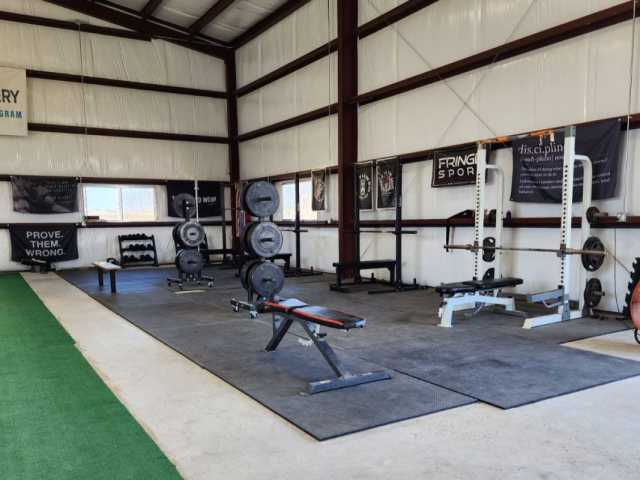



Recovery.com Verified Listing
Recovery.com verified that the name, location, contact information and license to operate for this treatment provider are valid and up-to-date.

Joint Commission Accredited

Licensed by Texas HHS

NAATP Member
Recovery.com is an independent, third-party mental health resource. Verification does not imply endorsement and does not guarantee the quality of treatment services.
Meet Your Care Team

Robin Lindeman
Executive Director

Dinah Holder
Director of Nursing

Dr. Keith Garcia
Psychiatrist
MD

Dr. Julie Tollemache
Psychiatrist
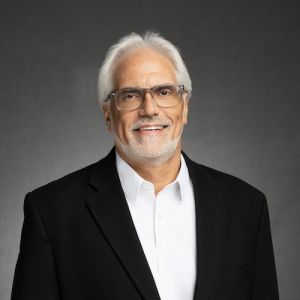
Eric Feagins
Nurse Practitioner
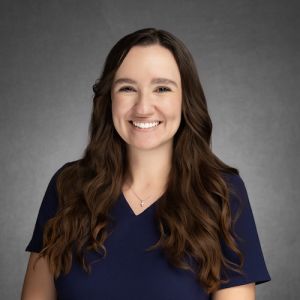
Britney Evans
Nurse

Shani Edwards
Nurse

Gabby Harkrider
Nurse

Kaylie Minigh
Nurse

Hayley Bushart
Clinical Director

Jenna Ward
Detox/IOP/OP Clinical Manager

Amanda Gutierrez
Clinician

Anahi Ozuna
Clinician

Cody Werner
Clinician

Matthew Parker
Clinician

Chrissy Cruze
National Director of Clinical Outreach

Alexis Royal
Clinical Outreach

Ryan Holt
Clinical Outreach

Santi Sustaeta
Clinical Outreach

Amanda Prine
Director of Client Services
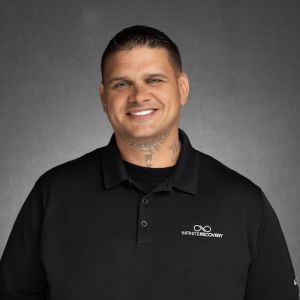
Steven Long
Director of Operations

Madison Farrell
Director of Admissions
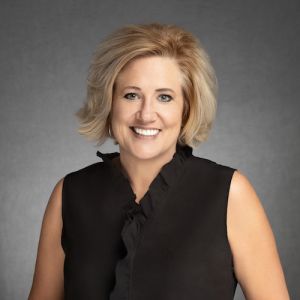
Leah Godfrey Stephens
Family Program Manager / Program Counselor

Ryan Smith
Senior Director of HR and Compliance

Jake Manusky
Program Coordinator
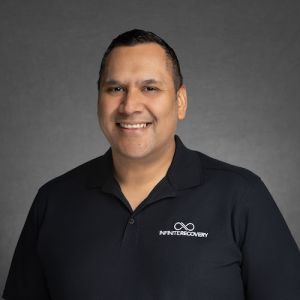
David Ysla
Family Program Therapist
Your Care Options
Specializations
Alcohol
Using alcohol as a coping mechanism, or drinking excessively throughout the week, signals an alcohol use disorder.
Anxiety
Anxiety is a common mental health condition that can include excessive worry, panic attacks, physical tension, and increased blood pressure.
Co-Occurring Disorders
A person with multiple mental health diagnoses, such as addiction and depression, has co-occurring disorders also called dual diagnosis.
Depression
Symptoms of depression may include fatigue, a sense of numbness, and loss of interest in activities. This condition can range from mild to severe.
Drug Addiction
Drug addiction is the excessive and repetitive use of substances, despite harmful consequences to a person's life, health, and relationships.
Family Therapy
Family therapy addresses group dynamics within a family system, with a focus on improving communication and interrupting unhealthy relationship patterns.
Holistic
A non-medicinal, wellness-focused approach that aims to align the mind, body, and spirit for deep and lasting healing.
Post Traumatic Stress Disorder
PTSD is a long-term mental health issue caused by a disturbing event or events. Symptoms include anxiety, dissociation, flashbacks, and intrusive thoughts.
Who We Treat
Men and Women
Men and women attend treatment for addiction in a co-ed setting, going to therapy groups together to share experiences, struggles, and successes.
Treatment Services
Day Treatment
In a PHP, patients live at home but follow an intensive schedule of treatment. Most programs require you to be on-site for about 40 hours per week.
Detox
Detox fully and safely removes toxic substances from the body, allowing the next steps in treatment to begin with a clean slate.
Intensive Outpatient Program
In an IOP, patients live at home or a sober living, but attend treatment typically 9-15 hours a week. Most programs include talk therapy, support groups, and other methods.
Outpatient
During outpatient rehab, patients attend a structured treatment program while continuing to live at home.
Residential
In a residential rehab program, patients live onsite, with access to daily treatment and 24-hour care. An average stay is 30-90 days.
Approaches
Evidence-Based
A combination of scientifically rooted therapies and treatments make up evidence-based care, defined by their measured and proven results.
Holistic
A non-medicinal, wellness-focused approach that aims to align the mind, body, and spirit for deep and lasting healing.
Strengths-Based
Providers using a strengths-based philosophy focus on the positive traits of their patients, creating a positive feedback loop that grows confidence.
Twelve Step
Incorporating spirituality, community, and responsibility, 12-Step philosophies prioritize the guidance of a Higher Power and a continuation of 12-Step practices.
Therapies
1-on-1 Counseling
Patient and therapist meet 1-on-1 to work through difficult emotions and behavioral challenges in a personal, private setting.
Mindfulness Therapy
This ancient practice can be mental, emotional, and even spiritual. In meditation, you focus your attention on the present moment without judgement.
Family Therapy
Family therapy addresses group dynamics within a family system, with a focus on improving communication and interrupting unhealthy relationship patterns.
Motivational Interviewing and Enhancement Therapy (MET)
This approach is based on idea that motivation to change comes from within. Providers use a conversational framework that may help you commit to recovery.
Relapse Prevention Counseling
Relapse prevention counselors teach patients to recognize the signs of relapse and reduce their risk.
Solution Focused, Goal-Oriented Therapy
A quick goal-oriented therapy that helps patients identify their current and future goals, find out how to achieve them, and empower future problem-solving.
Somatic Experiencing
This method treats emotional trauma stored in the body. A therapist helps patients work through the physical feelings associated with emotional pain.
Conditions We Treat
Grief and Loss
Grief is a natural reaction to loss, but severe grief can interfere with your ability to function. You can get treatment for this condition.
Anger
Although anger itself isn't a disorder, it can get out of hand. If this feeling interferes with your relationships and daily functioning, treatment can help.
Anxiety
Anxiety is a common mental health condition that can include excessive worry, panic attacks, physical tension, and increased blood pressure.
Bipolar
This mental health condition is characterized by extreme mood swings between depression, mania, and remission.
Codependency
Codependency is a pattern of emotional dependence and controlling behavior. It's most common among people with addicted loved ones.
Depression
Symptoms of depression may include fatigue, a sense of numbness, and loss of interest in activities. This condition can range from mild to severe.
Obsessive Compulsive Disorder (OCD)
OCD is characterized by intrusive and distressing thoughts that drive repetitive behaviors. This pattern disrupts daily life and relationships.
Post Traumatic Stress Disorder
PTSD is a long-term mental health issue caused by a disturbing event or events. Symptoms include anxiety, dissociation, flashbacks, and intrusive thoughts.
Stress
Stress is a natural reaction to challenges, and it can even help you adapt. However, chronic stress can cause physical and mental health issues.
Substances We Treat
Alcohol
Using alcohol as a coping mechanism, or drinking excessively throughout the week, signals an alcohol use disorder.
Benzodiazepines
Benzodiazepines are prescribed to treat anxiety and sleep issues. They are highly habit forming, and their abuse can cause mood changes and poor judgement.
Chronic Relapse
Consistent relapse occurs repeatedly, after partial recovery from addiction. This condition requires long-term treatment.
Co-Occurring Disorders
A person with multiple mental health diagnoses, such as addiction and depression, has co-occurring disorders also called dual diagnosis.
Cocaine
Cocaine is a stimulant with euphoric effects. Agitation, muscle ticks, psychosis, and heart issues are common symptoms of cocaine abuse.
Drug Addiction
Drug addiction is the excessive and repetitive use of substances, despite harmful consequences to a person's life, health, and relationships.
Ecstasy
Ecstasy is a stimulant that causes intense euphoria and heightened awareness. Abuse of this drug can trigger depression, insomnia, and memory problems.
Heroin
Heroin is a highly addictive and illegal opioid. It can cause insomnia, collapsed veins, heart issues, and additional mental health issues.
Languages
Aftercare
Care Designed for Your Needs
Personal Amenities
Amenities
Special Considerations
Activities

Learn More About the Center
Accelerated Resolution Trauma Therapy
Find out what to expect in an ART session and how it differs from eye movement desensitization and reprocessing (EMDR).
Body Movement Therapy
Learn how movement therapy has been proven to support the addiction recovery process.
5 Ways Nutrition and Addiction Recovery Work Together
Explore how healthy food helps someone rebuild and stay on track in recovery.
The Types of Therapy Used in Drug Rehab
Learn about the special focus and benefits of common therapies used in addiction treatment.
What people are saying
Treatment
4.0
Accommodations
3.9
Food & Nutrition
3.9
Value
3.9
Linda W
Treatment in 2020 • (30 days) • Reviewed 06/18/23
Former Client
•Retired nurse
Paige
Reviewed 05/27/24
Review from Rehabs.com
Taylor
Reviewed 04/04/16
Review from Rehabs.com
Anonymous
Reviewed 06/24/15
Review from Rehabs.com
Anonymous
Reviewed 04/04/16
Review from Rehabs.com





